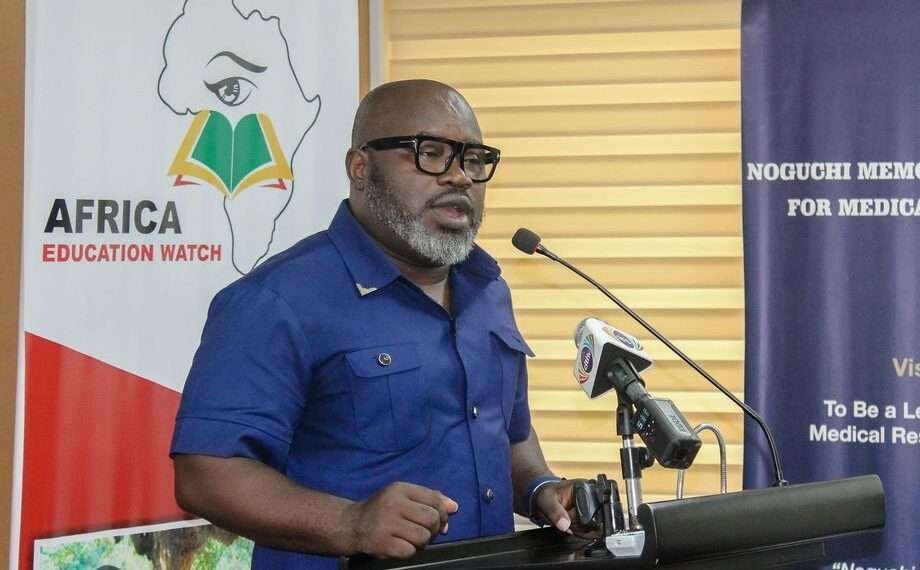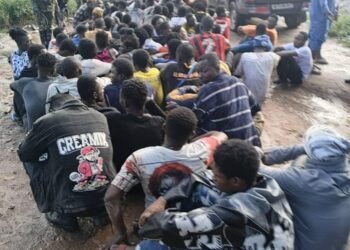Africa Education Watch (Eduwatch) has called on the Ghana Education Service (GES) to implement an education in emergency plan to enhance education in disaster.
According to Eduwatch, while efforts to develop an Education In Emergency plan have been ongoing since COVID, the resilience of Ghana’s education sector to emergencies is questionable.
It revealed that it’s also clear that resilience is not linear across the country because disasters impact various levels of education and various communities differently.
As such, the education think tank stated that it is important to approach education policy and programming post-COVID-19 with a holistic view of the hazards prevalent across Ghana’s education sector, and to design evidence-based solutions to them.
“The Ghana Education Service must implement an Education In Emergency plan in all districts to enhance education in disaster preparedness.”
Africa Education Watch
Eduwatch argued that social vulnerability can be operationalized towards addressing prevalent hazards in the education sector. It stated that the concept of social vulnerability captures the characteristics and resources that inform a community or group’s susceptibility to the impact of a disaster.
Critically, it explained that social vulnerability transforms the way people approach disaster management by conceptualizing disasters and their aftermath, as being informed by the social and political interactions between people in a given space, as well as how they influence interactions between people and the environment.
“Thus, rather than disasters being either ‘man-made’ or ‘acts of God’, scholars in the social vulnerability literature understand disasters as a complex interface of interactions between social, economic and political dimensions of the built environment and society. Since education is a fundamental right for all children in Ghana, care must be taken to understand the circumstances that undercut free and fair access, particularly in the wake of major ecological disaster.”
Africa Education Watch
Addressing educational emergencies
Furthermore, Eduwatch revealed that while Ghana has made significant in-roads into improving enrolment and gender parity at the basic and secondary levels, stark inequalities exist and have been exacerbated by COVID-19.
It revealed that income continues to directly influence students’ completion rates, and governments have failed to maintain their commitment to the United Nation’s 20 per cent budgetary allocation for education financing.
“Projections into Ghana’s public expenditure reveals that despite projected growth in Gross Domestic Product (GDP) between 2023 and 2025, education’s share of national spending will possibly decline from 12.97 per cent in 2023 to 11.4 per cent in 2025. Critically, children’s re-entry rates upon school reopening was quite challenging, particularly for young girls.
“In one sample of 200 schools by Eduwatch, about 20 per cent schools saw between one and three girls fail to return to school because of pregnancy or migration outside their communities. This outcome is worrying as it demonstrates that amid the onslaught of COVID-19, school- going girls may have continued to fall through the cracks of social protection.”
Africa Education Watch
Meanwhile, as part of its recommendations, Eduwatch expressed the need for the Ministry of Finance to allocate at least 20 percent of the Earmarked Funds Capping and Realignment proceeds into financing basic education infrastructure.
In addition, it highlighted that capital investment from mainstream GETFund must be enhanced.
“The Ministry of Education should collaborate with the Ghana Library Authority and the Centre for National Distance Learning and Open Schooling to adopt a rapid deployment strategy for virtual learning in communities affected by emergencies. This strategy should take into cognizance the peculiar needs of rural communities without electricity and internet.”
Africa Education Watch
Moreover, Eduwatch requested the Ministry of Education, Ghana Education Service and National Disaster Management Organization to work closely to develop a disaster data reporting and response system on schools and their communities.
It emphasized that data collected should be open source to allow Civil Society Organizations and the general public to better understand the nuances of disasters in Ghana’s education system.
READ ALSO: November 4 Election, A Two Horse-race Between Kennedy And Bawumia





















